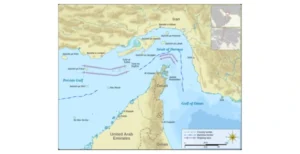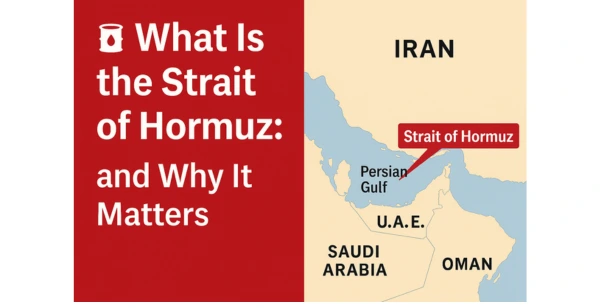Iran Moves to Block Strait of Hormuz: What This Means for India, Tehran, and the World
June 23, 2025 | By Stronic Media
Reading Time: 6 Minutes
In a move that could reshape global oil supply dynamics, Iran’s Parliament has formally approved legislation to close the Strait of Hormuz, a crucial maritime chokepoint for the world’s energy trade. While the final decision lies with Iran’s Supreme National Security Council, experts say this is the closest Iran has ever come to executing the long-feared blockade.
The action comes just days after the United States conducted airstrikes on three Iranian military installations. In response, Iran’s Foreign Minister Seyed Abbas Aragchi noted that “a variety of options are available,” without ruling out the possibility of a closure.
This move has sparked alarm in capitals around the world, with U.S. Secretary of State Marco Rubio warning on Fox News:
“If they [Iran] do that, it will be another terrible mistake. It’s an economic suicide for them.”
Here’s what you need to know, broken down into 4 key points:
1. What is the Strait of Hormuz, and Why is It So Important?
The Strait of Hormuz is a narrow passage that connects the Persian Gulf to the Gulf of Oman and then to the Arabian Sea. This makes it the primary exit route for oil-rich nations like Iran, Saudi Arabia, the UAE, Kuwait, and Iraq to export crude oil to global markets.
📌 Key Facts:
-
Roughly 20% of the world’s oil passes through the strait daily.
-
It’s only 33 km wide at its narrowest point.
-
The strait falls under Iranian and Omani territorial waters, but is governed by international maritime law under the United Nations Convention on the Law of the Sea (UNCLOS).
There is no viable sea-route alternative to bypass the strait, which is what makes any threat to block it economically and geopolitically explosive.

2. Why Is Iran Taking This Drastic Step Now?
The trigger appears to be the escalation of U.S.-Iran tensions following American airstrikes on June 22, 2025. The strikes, reportedly in retaliation for alleged Iranian involvement in attacks on U.S. assets in Iraq, have brought the two adversaries closer to direct confrontation.
Iran has long used the threat of closing the Strait as a deterrent, but has never actually followed through—even during the Iran-Iraq War or heightened tensions in 2019.
This time, however, Iran’s domestic pressure is high:
-
Its economy is under severe sanctions.
-
There is growing public frustration over international isolation.
-
Hardliners in Parliament are asserting greater control over Iran’s foreign and security policies.
3. Impact on India and the Global Economy
India, the world’s third-largest oil importer, is highly vulnerable to such disruptions. Nearly 60% of India’s crude oil imports from the Gulf pass through the Strait of Hormuz.
👀 Implications for India:
-
Fuel prices may skyrocket.
-
Strategic reserves could be drawn upon to stabilize supply.
-
Indian refiners may have to diversify import sources, turning to West Africa, Russia, or the U.S.
Globally, markets have already reacted:
-
Brent Crude spiked by $8 per barrel within 12 hours of Iran’s announcement.
-
Stock markets in Asia and Europe saw significant drops in energy and airline stocks.
-
Shipping companies may be forced to reroute cargo, leading to delays and cost hikes.

4. Global Diplomatic Fallout and Next Steps
The threat has galvanized global powers, including:
-
The U.S. Navy moving more vessels into the region.
-
The European Union urging restraint and calling for an emergency UN Security Council meeting.
-
China, heavily dependent on Gulf oil, is reportedly in backchannel talks with Tehran to de-escalate.
Under UNCLOS, while coastal nations control their waters, they cannot impede “innocent passage” of ships through straits used for international navigation. A physical blockade could bring Iran into direct conflict with global maritime forces.
🛑 Final Word
Whether Iran will go through with the closure remains uncertain, but the strategic signal is loud and clear: Tehran is willing to upend the global oil order if it continues to face what it views as unprovoked aggression.
Countries like India must now rethink energy security strategies, and the global community faces a crucial test in maintaining peace in one of the world’s most volatile regions.














